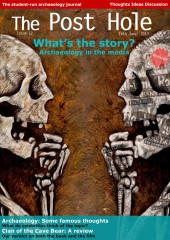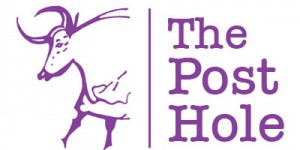As a Curator of Egyptology for a museum in the North East of England, I have done my fair share of local media interviews to promote our collections. Personally, I have always found these experiences to be fun, even if many of the interviewers do end up misquoting what I've said or (ironically) get my name wrong. So when I was invited to join a team of experienced media personalities to present a documentary series on mummies, to be aired on the History Channel back in 2006, I jumped at the chance. What could go wrong?!
For obvious reasons, the names of the innocent (and not so innocent) have been protected, but in the weeks and months that followed that initial agreement, I truly had my eyes opened up to the strange world that is television.
Often, when we think of television programmes featuring archaeologists, images of rainbow-jumper wearing, mud-covered middle-aged men bouncing between excavation pits wielding pottery fragments spring to mind. However, the production company behind this new series wanted something slicker, sexier and more akin to CSI (although I should state that 'slick' and 'sexy' are not words that are immediately conjured when people do actually see me). Nonetheless, as the youngest present (I was 25 years old at the time), it was perhaps thought that my eager enthusiasm mixed with my awe-inspiring knowledge on the subject of mummies would win over viewers.
I was sorely mistaken in thinking that there would be a substantial budget for this project. Our main "lab" was the computer room within the University's Department of Archaeology, which had been "made over" to include a pin board and a flickering light box for looking at X-rays. It soon became a competition amongst the cast to try and comically reposition the skeleton that featured in the background in every episode without the director noticing. More often than not, this would include rude finger gestures, holding signs or wearing items of clothing.
What surprised me the most was not the long hours that we had to work, or even the number of takes it took to get a shot of us walking down a pathway looking pensive, but the actual lack of lead-in time that we got to prepare for each mummy 'case'. More often than not, we would go in blind and be expected to talk on subjects that we weren't always familiar with, which sometimes included the results of scientific tests that hadn't been carried out yet. The way around this was often through ambiguous statements or suggesting different reasons for the discovered outcome. Towards the end of the project, we were often called back to re-shoot parts so that they matched properly with the scientific findings.
My main role on the programme appeared to change from episode to episode. One minute I was a museum curator, the next I was a conservator and at one point I was an archivist. To be honest, my CV has never looked so good! However, I know from having spoken to people who watched the programmes that it just seemed as though I was a bit of a lost soul with no sense of purpose- the dogsbody of the team. To top it all off, I was even missed out of one episode entirely after a rift with the Director over changing the shooting dates at the last minute, which conflicted with my 9-5 job schedule.
So how did it all pan out? Well, the 6 x one hour documentaries aired in January 2007 with little pomp and circumstance (due to overspending in production I believe) and in addition to the programmes being shown in this country, they were also on TV in North and South America. I had an email from a strange guy shortly afterwards- my only piece of fan mail to-date, which read:
"Can I just say that I enjoy the Mummy Forensics programme although the continued repetition of facts in issue is annoying but symptomatic of these sorts of programmes today - I presume for the American market who seem to forget what they have heard during the 2 minute advert break and need reminding.
But I am writing to you because I think you are absolutely gorgeous. I have noticed many beautiful archaeologists on TV programmes such as yours and Time Team but you are the most beautiful of all. Thank you - you brighten up my week."
I have absolutely no idea who this man is but have often wondered since as to whether he was ever released from the funny farm from which he sent this email. The mystery man did make one valid point however. Even I couldn't fail to notice and become frustrated at the number of times the narrator stated the blindingly obvious. At one point I actually became paranoid that maybe as a presenter I hadn't made things clear enough for the viewer, but sadly this is endemic within the numerous TV shows that follow a 'CSI'-style format. Producers, please, I implore you- frequent repetition kills any form of suspense and mystique. It also surely detracts from the expert presenter's time and I would like to think that is what people tune in for.
Several years on from that experience I realise that I was perhaps incredibly naïve to think that I would be God's gift to the television presenting world, OR that I was even what could be considered an 'expert' in the field of human remains and mummies, OR that I would have any say over the way that things were done. The process of being filmed at multiple angles repeating the same information over and over became quite laborious- as did the task of having to pretend I was hard at work doing background research on the computer, when really I was Googling job vacancies at the British Museum.
Would I do it again? Well, yes, probably- if I got paid (note to all budding TV presenters- check your contracts before signing your life away). However, I think the main thing I took away from the whole experience was that what goes on behind the scenes in television is very different to how we all think it would actually work. The next time you watch an archaeological programme like these and find yourself screaming at the presenters on TV for making such absurd, sweeping statements, try to have a bit of sympathy. More often than not their academic expertise stands for absolutely nothing if it contradicts the overall vision that the production company has for the project! Let's face it, how many TV producers want to hear the words "we just don't know"?




